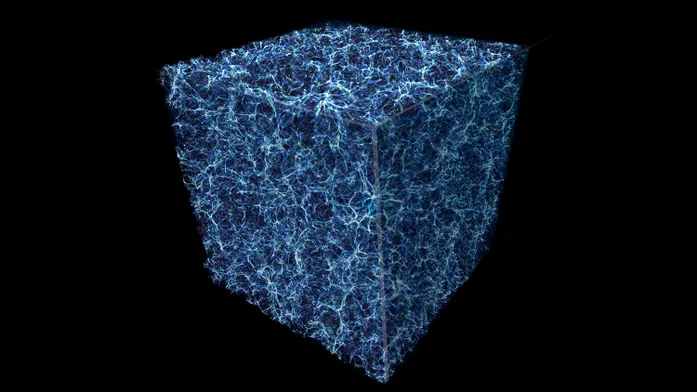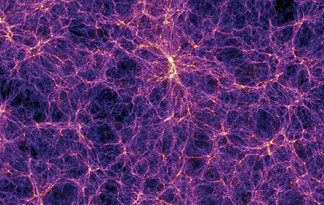Created Friday 08 March 2013
- The Original Superluminarians. They can go so far through space---and thus back in time---that there are those who think there isn't either much before them. I mean, if you need a zero-point in the distance one can travel through space/time, then it's hard to beat the distance that the Mycons can leap.
Imagine being water---never any but and always ---H2O for at elast 4.5 billion years.
Don't think I'll use these after all. The below is from an old note to myself (are my notes ever to anyone else?)
~~~~~~~~~~~~~~~~~~~~~~~~~~~~~
“So, are they smarter than humans?”
“You can make very few comparisons between your two races. As far as how many ideas or solutions to problems, they were slower than you for the time in which your two races were roughly comparable, so if pressed I’d say that an average human individual in the wild is smarter than the average myconian in the wild was. They took about 35,000 years compared to your 10-25,000 to insulate their society to a good deal from their natural adversaries.
For them, their last hurdle was predation. They had always been kept in great check by several predators. And of course for most of their history, they and their predators evolved in the typical cat-and-mouse posturing and adapting. But, as sometimes happens, they gained an advantage over their predators and soon left them behind—like you did the elements after you perfected agriculture.
They overcame their predators with intuition and abstraction, finally breaking free when they perfected myconian husbandry: when they started messing with their “genes.” Now, they don’t have DNA or even a centralized template like that, but husbandry and alteration of a path—evolution—are universal. And they never had a society per se before their husbandry had them develop metaorganisms out of themselves. So all that social jockeying bullshit that occupies about 99% of your time is alien to them.
Also, their leap off planet wasn’t as big a deal for them as it was for you. Their planet is essentially without atmosphere. They have a layer of dust and gases about 15,000 feet off the surface that burns up a good number of meteorites and filters out some of the radiation, but that’s it. They developed from a primary producer very much like big patches of fungi, each patch a self-contained network of tubules encased in a mucousy shell. Each patch roughly an individual. There aren’t as many biome niches there as there are here, so there isn’t as much diversity; when something occupied a niche, that was it, little else could vie long enough to try to compete for it. The world was too harsh to allow contenders. This, of course, doesn’t stop a biome from evolving, though. And the myconians did change over time. But the niches were pretty stable (or, well, pretty unstable in the way a storm is unstable, but it was always storming) so the myconians often just changed in needless ways, which allowed them to develop intelligence. Strange to think, isn’t it? Here there are a lot fewer viable unnecessary alterations. They certainly do exist here, but less. (The other organisms on their planet didn’t alter as needlessly as they did, though.) So, anyway, the rigors of space didn’t differ too too much from their planet. In space they could still eat just about anything and didn’t need much of an insulated environment, just from the radiation and lack of gravity, for the most part.
They also don’t really have a concept of war. They never had intraspecific competition—it had always been either very little contact before their leap out of their niche, or metaorganismic interdepedence afterwards. No real laws then either. They certainly have fought wars as we know them, but they approach them very differently. To them an organized group of sentient individuals all trying to destroy them is just one sort of problem they might face. They aren’t nearly as good at war as you, either. They are better at adapting and enduring.”
~~~~~~~~~~~~~~~~~~~~~~~~~~~~~
Hm. I kind like that. I could fold that into the Blattids, but it kinda looses something when it does. Still, that last paragraph is interesting to see: The idea is at least that old in me.
2021-04-15
Oh, tax day. Huh.
Saw this video in how spiders listen to their webs:
https://www.sciencealert.com/we-could-learn-to-communicate-with-spiders-with-music-made-from-their-webs
and hearkened back to this one I love:
https://www.pbs.org/video/deep-look-spiderdance/
And initially thought to add spiders as yet another being.
Then realized it'd be a good way to reconcile the Mycons.
And thus creating another way to get around
And a better conceptualization of space as an ecosystem
And how old they are
All while retaining a nod to the really cool earthly stuff that this celebrates
Oh, and that their web is this:

Or, well, at least part of this:

They are that old. They came to be at the very dawn of order and exist also within the folded Calabi–Yau dimensions of space-time. They (it) expanded as space did, "reproducing" (really, just keeping on becoming) as space did, thus feeding in part on dark energy (and creating information---massive information---as a byproduct). They exist down to a very small level, but are still affected by non-quantum physics and tend to exist more where there is more matter.
They can, though, convey information along/through themselves. And some types of information they in fact transmit instantly; whense their "holographic" nature
The trifids either travel in lines that are straight when space is modelled as uttler flat or they follow Mycon trails. Parts of the trifids---parts of their anatomy that are located (necessarily) throughout their forms---are desinged like sails or hooks that grab onto Mycon filaments and ride the information that instantly becomes spread throughout all of the universe-panning Mycon. The Mycon (andf why not refer to it as singular) is thus the rich soil that trifids dig their roots into. the Mycon is among the things (well, presuming I think of other things...) that serve as the substrate that allows for an interstellar biome and represents the oldest form of FTL travel.
The Brace of Angels.
Dictum 1 (well, it is the first time I thought of doing this, so, yeah, 1) of Interstellar Warfare: Hyperlight communication is more important than hyperlight travel; you can't regularly win outside your lines of communication. Not in space warfare where travel costs do still remain high for all. Even with the ferrymen.
They Who Are as Worthy of Anything of Worship
The most fundamental interstellar substrate species. That which lets things travel faster--and carries knowledge instantaneously (beat that some evolutionary path! (no species yet has--not yete and not since the beginning of time).
And yeah, they seem to be more than just roads, but at least builders and destroyers of roads using either a plan we can't really see or some weird ranomd walk but to a strange distribution.
their mother ships
They are an "unearthly race" a type of xenoform that is not like "life as we know it." It goes to the beat of a very different drummer. They are the a testament to how quckly---how automatically---these principles of physics generate life.
Butr they weren't seeding things. No. they've been around a long time, and have used their time and total free lunch to organize into a system that does all of those things above just fine, thanks.
But it's a hell of a system. Every point in it is the same. The ultimate hologram: holographic life. When the universe burst into existence, it was immediately followed by some form of self-organizing & -aggrandizing system. (Remember, it turns out that that's just the way our physics are---at least they are in my world.) That self-aggrandizer was "born" so early in the Big Bang that when the universe rather suddenly expanded, it took that one system with it everywhere (and still does, of course); and that one system stays as one system. One thing. One moment. One piece of life so fast and adapting that it wrote the need for its existence into the physics of that universe. One point changes and adapts well, they all instantly adapt as well. One particular place in the universe where it needs to adapt better to? No problem, how everywhere instantly can adapt to that sort of situation, too, if it occurs again.
So, yeah, it has learned a lot. Quite a memory for everything. Except what it no longer needs to. (It forgets nearly perfectly.) On its scale, the universe is a one-way train. The universe is always changing, but in one direction. What has past no longer needs to be adapted to since it will never come again. Not on its scale.
It rarely does so in a conscious way---although it certainly can and quickly if it puts its mind to it. But it lives on such a scale---not only of size but of diversity (I mean, if something can happen, it probably eventually will somewhere)---that it doesn't need to invest that much thought into dealing with all the little hitch-hikders that try to bum a ride for free. So it's rarely at war with a species, but that doesn't mean there aren't times when a species direly tries to fight back against the Mycon. They never win. They can't once the non-entropy is turned off. The Mycons just let entropy build very quickly in an area until that area is reduced to a heat death corpse and ceases to exist because all that exists there is a constant; it's cancelled out of any equation.
But the humans don't even know of the Mycon, let alone how to pay it. (Remember, the Mycon doesn't "seed" worlds. If they do it, they're on their frigging own; the Mycon has better things to do.) So humans punching holes through space is kind anti-Myconian.
So, yeah, Humanity's "first contact" was with the Mycons, as it is for everyone. And, yeha, the Mycons really don't care. Unless you become an irritant to the Mycons. Then the veyr space around you bursts forth with what would look like spongy tendrils in 21 dimensions. But to all of us just looks like a brownish-grey flash before an instant death. Or more often, jsut depleting that space of information---not an imflamation of immune response in that area, but not nurishing it so it slowly stops existing.
And yes, the Mycon are my favorite. To define space/time by how far back it can be jumped. Makes a lot of sense.